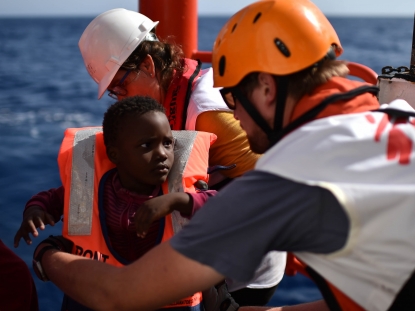As the players emerge from the tunnel for their final warmup before kickoff, the absence of young mascots strikes you - and there no handshakes with the opposition. The referee blows his whistle... and a deathly silence envelops the stadium. That is the reality of covering live sport in the age of coronavirus, as AFP's sports correspondent in western France, Fanny Carrier, explains.
About AFP
Agence France-Presse (AFP) is a leading global news agency providing fast, comprehensive and verified coverage of the events shaping our world and of the issues affecting our daily lives. Drawing from an unparalleled news gathering network across 151 countries, AFP is also a world leader in digital verification. With 2,400 staff representing 100 different nationalities, AFP covers the world in six languages, with a unique quality of multimedia storytelling spanning video, text, photos and graphics.
Copyright © 2019, AFP












